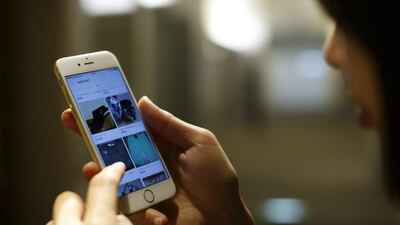The story Warning as online blackmail cases in Dubai increase by 42 per cent (March 22) is alarming. While social media has become a platform for people to connect, interact and share information, it also provides cyber criminals the opportunity to easily target their victims.
The majority of social media users are so engrossed in trying to impress others online that they do not think twice before sharing confidential and personal information. This in turn leads them to falling prey to online predators who misuse information.
Fatima Suhail, Sharjah
Schools need to invest in safety
To build more effective safety systems in schools, it is essential to deploy staff who will be responsible for managing risk and crises.
These representatives will not just arrange and install emergency signboards and plan and facilitate evacuations during an emergency. Rather they would serve as models for a culture of safety.
No one needs more protection than children who have little or no knowledge of safety.
There is no point in investing in the improvement of school standards without considering this aspect. That’s because one disaster can undo everything.
School-safety strategies ought to be formed in conjunction with the police, ambulance services and civil defence. Those entrusted with the responsibility to ensure safety in schools should be monitored for accountability by educational and civil authorities.
Ahmed Mohammed Ghdayer Alderei, Abu Dhabi
Wrong method for diagnosis
I refer to your article Down syndrome test for newborns being developed by Khalifa University researchers (March 22). We came to know 10 minutes after our daughter's birth 29 years ago that she had Down syndrome.
This diagnosis was based purely on facial expressions. The doctor said he was 100 per cent sure. I was 22 years old at that time and my wife was a year younger.
The revelation was extremely depressing. Over the next few weeks, our daughter underwent many medical tests. In the end we learnt that she was perfectly normal. This is why I have no faith in the face recognition technique.
Anthony Edwards, Austria
It’s time to think beyond oil
Regarding the article Opec pushes for commitment to oil production freeze ahead of meeting (March 21), such a move may help stabilise the oil price in the short term but the fact is that the market is oversupplied with huge amounts of inventory, which could take years to filter through the demand cycle. Low oil prices have benefited the consumer.
Consuming countries such as India are saving some $55 billion due to lower import costs for energy. On the flip side, oil producing countries such as Venezuela, Angola, Nigeria, Iraq and Algeria are facing hard economic times, with rising debt and dwindling foreign reserves. Venezuela is on the brink of chaos, with inflation hitting an all-time high and grocery shelves empty.
Unfortunately these countries did little over the past 40 years to diversify their economies away from hydrocarbons and in most cases leaked revenues due to corruption and mismanagement.
In comparison, the Gulf countries such as the UAE, Qatar, Saudi Arabia and Kuwait saved a portion of their petro dollars.
Not to mention that they started the diversification process decades ago and continue to diversify into tourism, innovation, renewable energy and services. I believe we have entered into a new era of oil and gas and the thought of $100 is unlikely.
It’s a highly competitive environment no longer controlled and it’s about defending and / or capturing market share.
Randall Mohammed, Dubai

